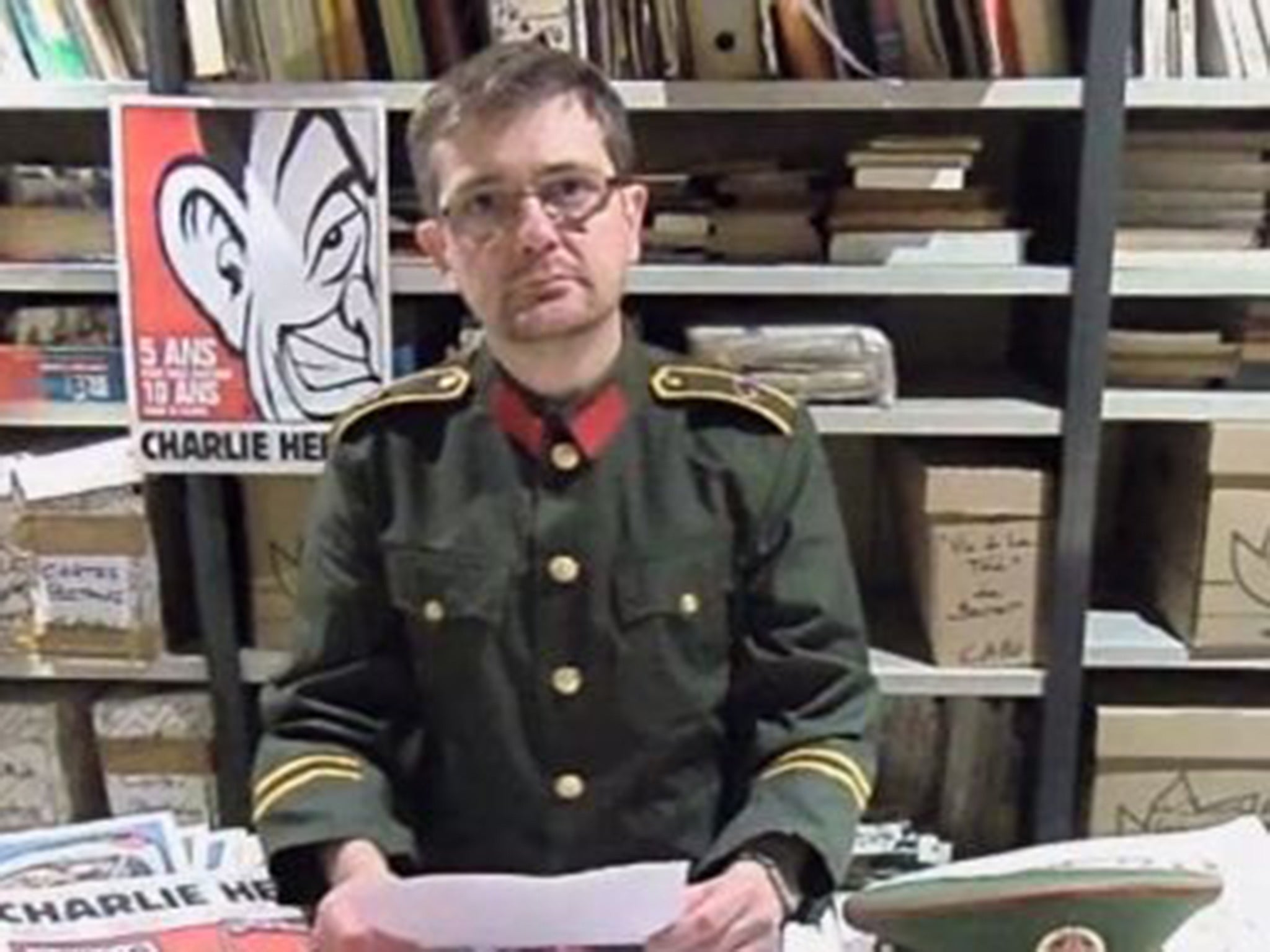Je Suis Charlie, Toronto Film Festival, review: A powerful eulogy for the victims
Documentary attempts to put the attacks and French society in context

This documentary directed by father-and-son team, Daniel and Emmanuel Leconte, has been sanctioned by the publishers of Charlie Hebdo and contains new interviews with staff at the scene of the shooting in January 2015. The original French title of the film, L’humour a mort, has the literal translation, “Comedy has died”, and is a more accurate description of a film that attempts to give an overview of the attacks, both in a historical context and the reaction of French society in its aftermath.
It starts by looking at the history of Charlie Hebdo and the attacks previously made on it because of the publication of cartoons depicting the Prophet Mohamed. This historical lookback contains archive interviews of several of the dead, most notably editor-in-chief Charb, which Daniel Leconte conducted for his 2008 documentary C’est dur d’être aimé par des cons (It’s hard being loved by jerks). The clips chosen also act as a haunting premonition of the firebomb attack that took place in 2011 and then the killing of 12 people at the offices of Charlie Hebdo on 7 January this year. In a voiceover, Daniel Leconte asserts: “If all the French press published the Danish cartoons perhaps we would not now be mourning friends.”
The strongest section of the film is the one that deals with the attacks. It contains powerful testimonies of three of the staff working on that day – publishing director Laurent Sourisseau, finance director Eric Portheault and cartoonist Coco. Their testimony highlights the confusion they felt in what was the longest minute of their lives. Portheault, who was first on the scene in the office where most of the dead lay, says: “I won’t go into detail about what I saw out of respect for the victims.”
It’s in keeping with the ethos of the documentary which is to respect the dead as much as possible while also making an argument about the merits of the magazine. Once the media interest settled down, the aftermath of the murders gives off a sense of disillusionment.
The arguments that appeared saying the magazine got what was coming to it for being provocative are questioned. They see a lot of hypocrisy in the reaction of French society. There is clear resentment at former employee Delfeil de Ton writing a negative piece about his time at the magazine and the ethos of work, just a week after the attack. But the arguments are sometimes lost as the directors try to both provide a eulogy for the dead, while also offering a societal critique.
Join our commenting forum
Join thought-provoking conversations, follow other Independent readers and see their replies
Comments